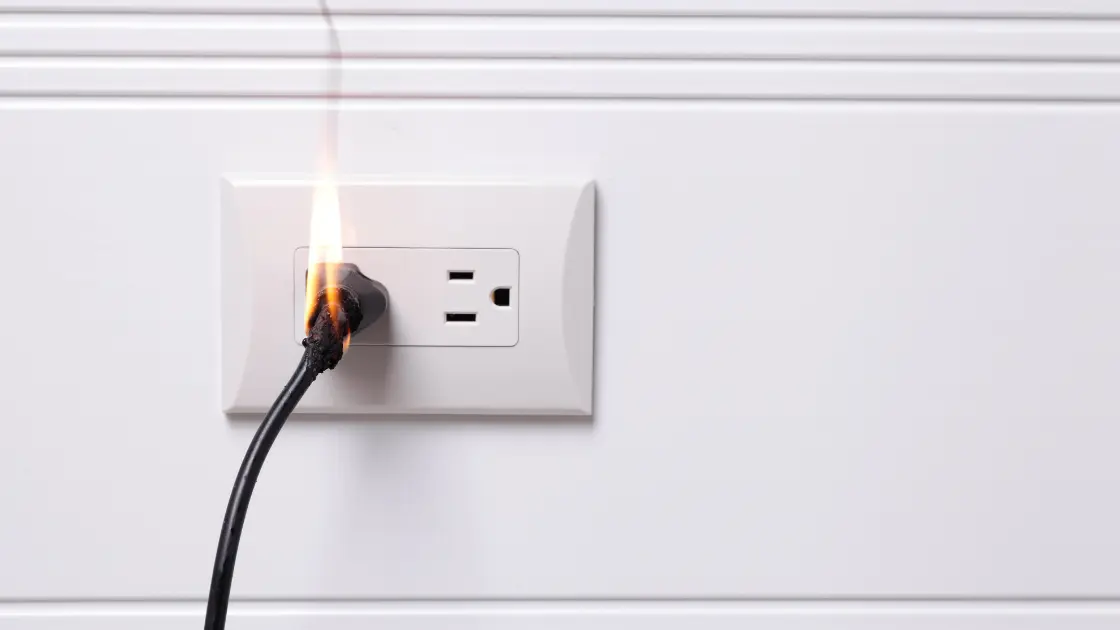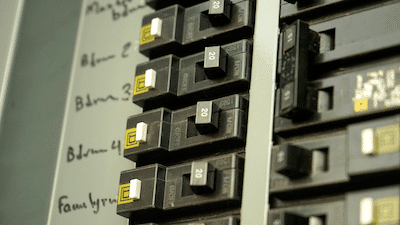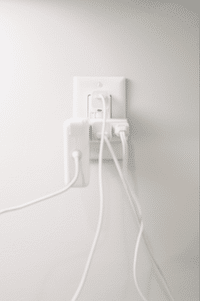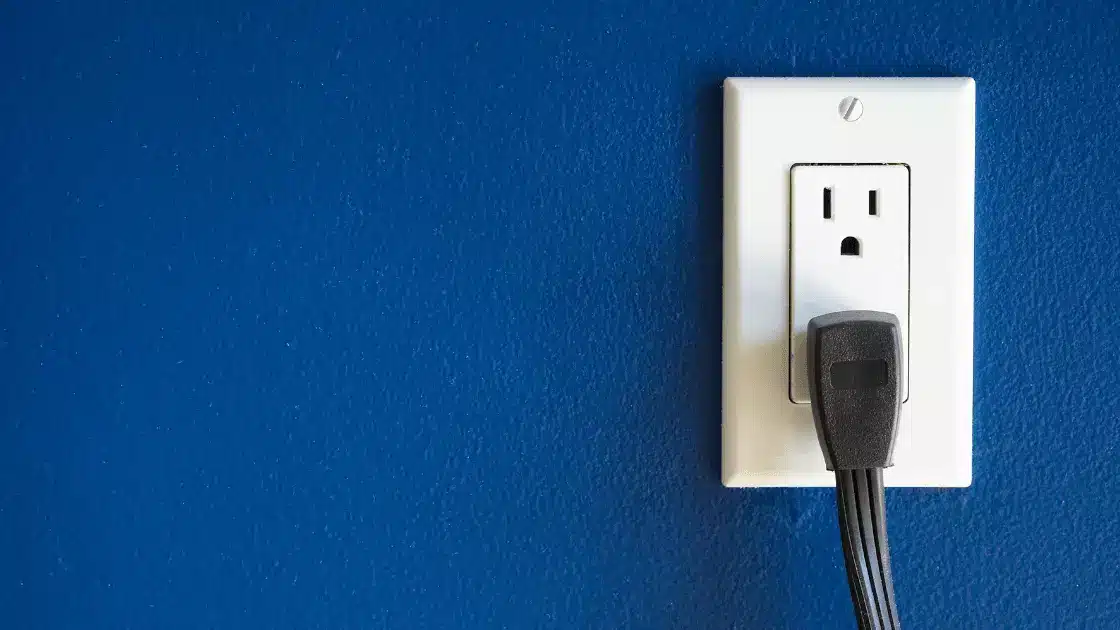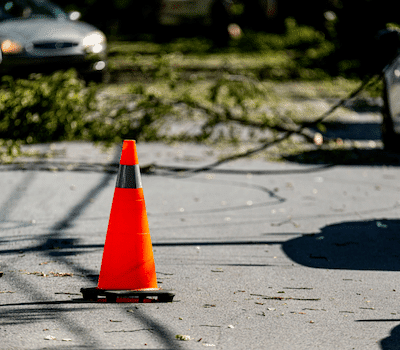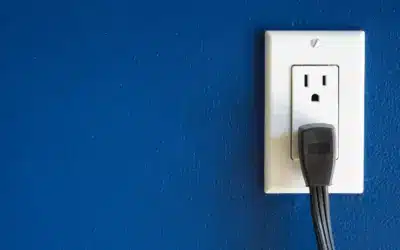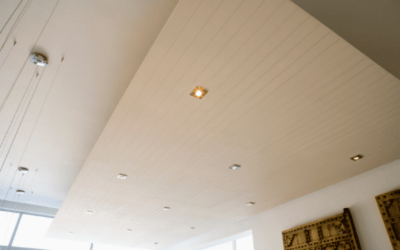1.Cut the Power
The only way you can ensure that an electrical device is safe to maintenance is if the device is no longer connected to or using a power source. If you are working on an outlet or switch then cut the power to that electric source by flipping the switch in your breaker box.
Test that the outlet or switch is not hot or receiving electricity from the source by plugging in a small appliance or turning the switch on. When you have flipped the switch at the breaker box and tested that the outlet or switch is not hot then it is safe to work on it. Similarly, unplug appliances before inserting metal objects as metal conducts electricity and can shock you.
2.Know Electrical Fire Safety
3.Don’t Overload Outlets Or Circuits
Most electrical outlets have only two spaces for plugs. Typical outlets are not intended to supply electricity to more than 120 – 125 volts of electricity, depending on the outlet. Be careful using outlet strips with multiple items plugged into them. Plugging too many items into an electrical outlet can overwhelm the outlet and lead to electrical shorts or fires.
Instead, try to better distribute where appliances are plugged in or have an expert electrician install additional outlets for at desired locations. If your TV picture shrinks or flickers when I major appliance in the home is turned on then you will need to have your circuits or wiring tested by a trained local electrician. If fuses or circuit breakers blow frequently then there could be an electrical issue that requires the attention of an experienced local electrician.
4. Minimize Extension Cord Usage
5.Never Use Electrical Appliances Near Water
6.Check For Outlets Overheating
7. Utilize Child-Proof Electrical Tactics
If you have small children in the home, or have frequent guests with little ones, ensure that outlets are child-proofed. Simple outlet covers are inexpensive and easy to install. Ideally, install spring-loaded covers (similar to these) that automatically shut when nothing is plugged in. Keep electrical cords out of the reach of children. Teach children not to attempt to poke anything in electrical outlets or electrical appliances.
8.Take Note Of Flickering Lights
9.Install Ground Fault Circuit Interrupters or GFCIs
10.Install Arc-Fault Circuit-Interrupters
Arc-Fault Circuit-Interrupters are specialized circuit breakers which can detect slow electrical leaks. Electrical leaks, or arc faults, are dangerous because they can mean that electrical wiring is compromised but not completely shorted. These arc faults can produce small amounts of electrical energy that generates heat and can spark. If not attended to, these compromised wires still connected to electricity can be dangerous, even causing electrical fires inside the walls of your home. An arc-filter circuit-interrupter detects the arc fault and then shuts the circuit off. Eliminating the electrical leak from the source of the leak reduces the ability for the leak to continue, protecting your home.
11.Steer Clear Of Power Lines
Never touch or go near an outside wire that has fallen. Do not touch an object that a downed wire is touching, such as a vehicle. Never allow children to fly toys such as kites, remote control planes, or drones near power lines. If a kite or other object does get tangled in a power line don’t attempt to retrieve it. Call the utility company to help.
If you have a tree on your property that your kids enjoy climbing, make sure there are no power lines near or touching the limbs of the tree. Because trees contain moisture they can conduct electricity by touching a limb in contact with a power line. Be careful when carrying large objects such as ladders, poles, and swimming pool tools. Ensure that you are not in the path of overhead electrical wires. Touching an electric power line with one of these objects could pass a powerful bolt of electricity through the object and to you.
12.Practice Proper Electrical Cord Safety
Do not yank cords to unplug appliances. Never carry appliances by the electrical cord. Ensure that kitchen appliances are secured on tables and counters near the wall to avoid getting knocked to the floor and pulling on cords. Never nail or tack electrical cords to walls, fixtures, or floors. Don’t arrange rugs or furniture so that electrical cords are underneath. Be sure that power cords are not pinched between furniture. Putting excessive pressure on power cables can damage the cord’s insulation (exposing the conductor wires), or compress the conducting wire (can lead to overheating and cause potential electrical fires). When storing electrical cords, do not roll them up or store them hanging or on hooks. This could cause premature fraying and damage to the cord.
Call The Experts
If you experience an issue with your home’s electrical system, then don’t try to DIY. Electricity is dangerous. Leave the maintenance, repair, and installation of your home’s electric system to the expert electrical team at Smith & Keene. Contact Smith & Keene to schedule an appointment with our team of highly trained electricians to evaluate your home’s electrical work today!
Contact Us
When your system isn't working, IT'S TIME to contact the HVAC experts in Hampton Roads, Smith & Keene



